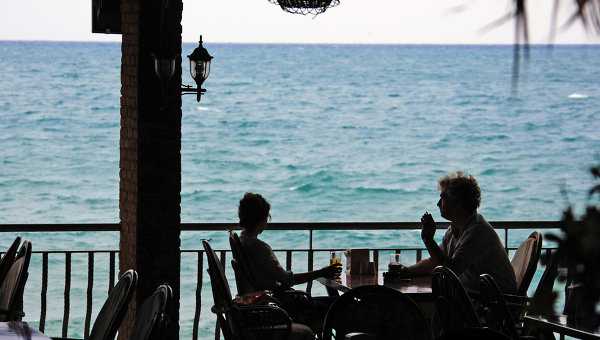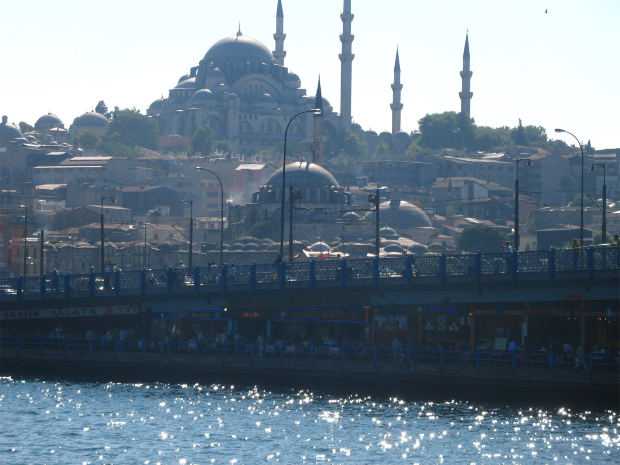Currently holding the EU Council Presidency, France, which assumes it as a duty to give human rights and democracy lessons to the world, is now being accused of genocide.
Because of its role in the events that occurred between two tribes in 1994 and resulted in the death of 800 thousands of people, France is officially accused of genocide with a report declared by Rwandan government on August 5th 2008. In the report prepared by the Rwandan Investigatory Committee, it is mentioned that “The support of France had a political, military, diplomatic and logistical nature”.
In the 500-pages report of the Commission, it is stated that France was aware of the genocide arrangements, took part in these arrangements, and played an active role in the murders. France is also being accused of providing intelligence, strategy and military support to the perpetrators of genocide, contributing to the determination of the list of people to be murdered, providing weapons, being directly involved in the killings. The commission suggests Rwandan government in its report that “Formal allegations against the French government should be submitted to the international institutions, legal action should be brought and 33 French political and military officials should be brought to trial”.
The Investigatory Committee also makes heavy accusations against French soldiers who were on duty during the military operation carried out by France in June-August 1994 under the guise of “humanitarian assistance”. Rwandan Ministry of Justice tells in its statement on the issue that “French soldiers were also directly involved in the genocide, they killed Tutsis and those Hutus who had been blamed for hiding Tutsis, and they raped many Tutsi people who survived”. The Ministry of Justice emphasizes that “France’s great support for, decisiveness in and insistence on the murder policy in Rwanda prove that French military and political officials were accomplices in the execution and arrangement of Tutsi genocide in 1994”.
Among the French officials who are being accused in the report are the President of the time Francois Mitterand, Prime Minister Eduard Balladur, Foreign Affairs Minister Alain Juppé, his former chief of staff Dominiques de Villepin, Elysee Secretary General Hubert Véedrine.
As is known, the downing of the French airplane aboard which Rwandan and Burundian presidents were traveling in 1994, resulted in the incitement of massacres in Rwanda. It had been found out that the missiles used in the sabotage against the plane had come from the arsenal of the French army. All of the three French pilots had died in this sabotage.
According to the United Nations, the genocide that resulted in the death of so many people in April-July 1994 had been “planned” for the annihilation of Tutsis by Hutus. In the statements made by the UN at different times, it was told that French companies had continued to supply weapons to this country even after the UN imposed arms embargo to Rwanda and that the UN had been warned about the massacres three months ago, but the initiatives for a resolution to be taken by the Security Council for tasking the UN troops in order to prevent any massacre had been hindered by France.
Despite all these developments, French administration insistently continues to avoid making any explanation showing repentance. It is reported that in the course of the preparation of the report, France has been making efforts to prevent genocide allegations from getting official recognition by pressuring Rwandan government through a variety of means, Rwandans did not yield to pressures, and they opted for the truth to come to light.
When the report was announced, France strictly rejected the accusations against its former political administrators and military officials and Romain Nadal, the Spokesman of the Foreign affairs Ministry, told that there were “unacceptable” accusations against French political and military leaders in the report prepared by the Committee; and this stance of France is accepted as an example of typical “French custom of denial”.
Rwandan genocide is unfortunately neither the first nor the last damage to the humanity caused by France with its wars and intrigues. Despite all its denials, the dark past of France is full of serious crimes against humanity.
This decision on genocide is not the first accusation against France in the international arena. In June 2006, French State and Railway Company “were convicted of playing a role in the transportation of the Jews to the concentration camps during the Second World War” and were ordered to pay compensation. The French Railway Company also had similar convictions previously.
It has been already written in the pages of history that France subjected 1 million people in Algeria to genocide with its attacks directed at innocent civilians during the Second World War and that it attempted to annihilate Algerian people by torturing 25.000 people and with the extrajudicial killings of 3.025 persons. In the course of the investigations into what happened in Algeria, it was established that in the murky operations of certain Algerian terrorist groups, there was a forth individual, mostly a police officer or a military security officer who accompanied them and that these terrorist groups confirmed that the police, military security or SDCE (French Secret Services) and a subordinate secret service called GIC gave them information slips and thus indicated their targets; in short, it is known they carried out the filthy activities on behalf of the police and the republican army.
In that period, the Algerian Muslims called Harkis, who were conscripted in the French army, were disappointed with the result of their attempts to take refuge in France after the independence of Algeria. Only for 42 thousand of them, they had provided homes. Upon the request of De Gaulle in 1962, they were housed behind barbed wire deep in the French forests in small uncomfortable barracks constructed hastily. This is an interesting example of what has happened to the collaborators of the French against the independence of their country.
Turkey is also one of the countries that have been targeted by France for her obscure policies. During World War I, France had occupied Ottoman territory and massacred millions of innocent civilian people. As a result of “the friendship ties that had strengthened for centuries” between the Armenians and France, the Armenian gangs were provided with arms in the end of the 19th century and provoked to rebel against the Ottoman Empire. Part of the members of these Armenian gangs who did not succeed to pull away territory from Turkey at the end of World War I, fled to France.
These Armenians, who went to Marseilles, were brought together in the Oddo camp which had extremely bad housing conditions. The Oddo camp was officially closed down in 1928, but actually in 1935. Not any Armenian could leave the camp without a working contract. The authorities treated these Armenians like stateless people, but when France fought with Germany they were sent as soldiers constituting another hypocrisy in history that the French have to account for.
It is still fresh in our minds that – until it caused harm to the country with the Orly attack – France did not show any reaction for years against the terrorist organization ASALA, which came into existence in the 1970’s and was known for its attacks against Turkish targets especially diplomats, and that France felt sympathy for the Armenian terrorists and adopted a tolerating attitude.
In the 1980’s, the Armenian terrorist organizations changed their tactics upon the reactions they received from the world’s public opinion and resorted to cooperation with the terrorist PKK. The PKK was known for its attacks against Turkey and became now affiliated with ASALA which killed diplomats. These facts were stated many times by the relevant experts and supported with evidence. In spite of this, France did not take any measure against these terrorist organizations that were hostile towards Turkey and refrained from cooperation. This was extremely meaningful….
When talking about “France” and “terror”, one of the names that comes up in our minds is Mitterand and his wife who are also accused for the genocide in Rwanda. The Turkish public opinion knows these two very well. The support provided by France to the PKK has increased considerably due to the foreign policy understanding of Mitterand and maybe also a little bit due the effect of the “special protection” shown to the PKK by First Lady Daniella Mitterand as a result of her “personal friendship” with Head of the Paris Kurdish Institute Kemdal Nezan. Consequently, France has become one of the most important bases of this terrorist organization in Europe. And it appears that France still continues to welcome terrorist groups that have no other aim than being hostile to Turkey.
However, the Armenian diaspora in France as well as the terrorist organizations, that are striving against the independence and/or territorial integrity of other countries, are collaborating with France without foreseeing what will happen to them by trying to understand what has happened to those who betrayed Algeria, Rwanda and the Ottoman State. In the future, as it has happened before, France shall push aside the traitors in accordance with its own interests or shall, instead of her own children, send the traitors to other wars to die.
As a matter of fact, it is not a coincidence that France is pronounced whenever we talk about a massacre, war or genocide at any place of the world. While she has a history of colonization, she continued her aggressive, expansionist policies in the 21st century. She holds control of an important part of the world’s arms trade. Her national income is bolstered with the blood shed in other countries darkly shadowing world peace. Every year, more than 300 thousand people are being killed on the world with conventional weapons. Even more people are being wounded, violated in their rights, forcefully deported and left helpless. In 2005, 82% of all the arms transfer on the world was realized by five countries. One of these countries is France. Thus, France has an important portion in the world’s arms trade. A war that is staged at any place on the world is sustaining the French economy.
In France there is still a longing for colonization and laws that praise the era of imperialism and slavery are still in force. Although these raise some doubts about the long-term foreign policy goals of France, at present they talk about a “French crisis” on the world. Certain historians say that the “regression process” of this country started with the Prussian-French War in 1870. Although France won in World War I on paper, this was actually the beginning of the end. World War II followed by the Cold War era caused polarization between the USA and the USSR as a result of which France regressed even more and in the international arena this country was not taken so seriously anymore.
The time has come for France to refresh her memory and encounter her past not only because of its inhuman acts in Rwanda, but also in the territories of the Ottoman Empire, in Algeria and in the other colonies.
France should accept the role that she has played in the genocides throughout her history and apologize for that. French politicians and military officials that are responsible for the genocide in Rwanda should face trial in the international court for war criminals.
In spite of everything is there still freedom, equality, brotherhood?…
The Organization for the Commemoration of the Genocide Victims
(SKAO)





